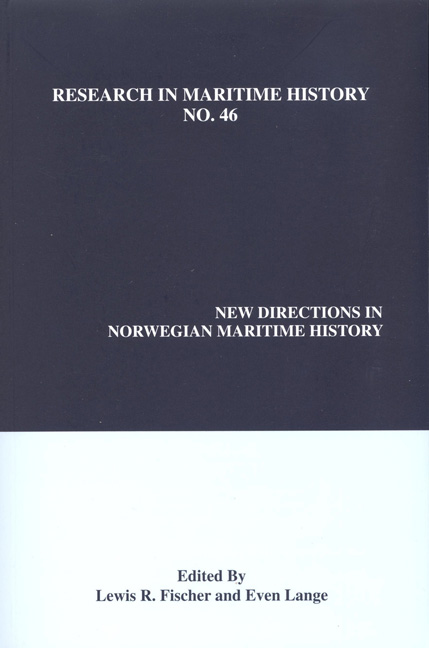Introduction
Summary
A comprehension of the maritime sector is central to an understanding of Norwegian economic development and cultural identity during the last two centuries. Indeed, it is difficult to find any other nation where maritime activity has consistently played a more important role since the early nineteenth century. But the establishment of maritime history as a scholarly discipline in this country has been very long in the making. Until recently, few professional historians ventured into the sub-discipline, and those who did for the most part only stayed in the field for a short period of time. As a result, the writing of Norwegian maritime history was for a long time left to amateurs and journalists. When Helge W. Nordvik, an outstanding exception to this generalization, surveyed the state of the field at the beginning of the 1990s, his conclusion expressed a profound ambivalence: while important progress had been made in the preceding couple of decades, Norwegian maritime history still focused on fishing and the associated spheres of whaling and sealing. Despite public fascination with the sea and most things maritime, Norwegian scholarly literature, in Nordvik's view tended “to neglect the actual operations of maritime firms and the economics and policies of maritime transport” which constitute the dominant part of the modern maritime sector.
This disjunction between the nature and importance of Norwegian maritime activity on the one hand, and the scholarly literature on the other, is now much less of a problem. Professional maritime history has developed as one of the attractive sub-disciplines in the expanding field of Norwegian economic history during the last few decades. At schools of business and economics in Oslo and Bergen, and at universities in several parts of the country, historical research has increasingly been directed towards modern economic and business activities, including those in the maritime sector. The rapid growth and regional spread of higher education, fuelled by rich oil revenues since the 1970s, is obviously among the driving forces behind this development. The relatively backward state of economic and maritime history at the outset motivated important efforts to improve our knowledge in these fields.
- Type
- Chapter
- Information
- New Directions in Norwegian Maritime History , pp. 1 - 6Publisher: Liverpool University PressPrint publication year: 2011



